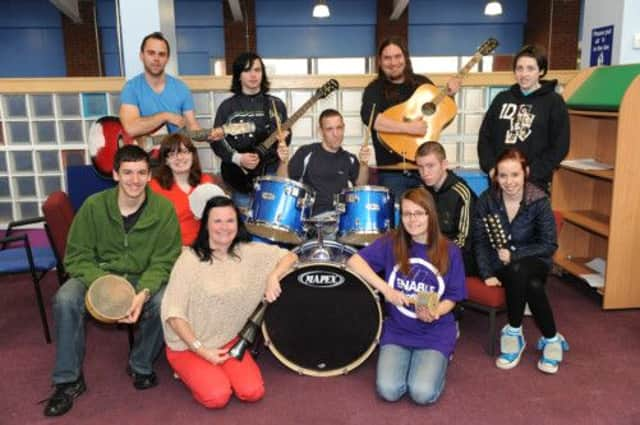Teaming up to help people with learning disabilities


And as we start to see the personalisation of social care being rolled out across Scotland we see the lives of individuals being improved.
ENABLE Scotland continues to lead the drive forward of SDS and we are starting to see people who have learning disabilities take control of their life and the support they receive to allow them to play a full and active role within their communities.
Advertisement
Hide AdAdvertisement
Hide AdThe social care sector is operating in a very difficult financial climate where budgets are being reduced. It is therefore even more important to focus on the outcomes for individuals and the outcomes the service is having on their life. Social care providers must be more creative and innovative than ever before to ensure they react to the requirements of their customers.


As a result, alternative delivery vehicles are developing across Scotland, such as public social partnerships (PSPs) and social enterprises, which are vital to enhancing the outcomes for individuals and delivering efficiency and value for money for our local authority partners.
PSP is a relatively new approach to public service delivery. The most successful examples are founded on a co-planning approach, whereby partners from the public sector and the third sector share responsibility for service design, in order to optimise outcomes for people who access services.
Where we have seen it working most effectively for people who have learning disabilities is when individuals and their families come together with local authorities and third sector organisations to shape the services and support.
The Scottish Government has recognised the valuable role that social enterprises and voluntary organisations play in the delivery of public services in Scotland, emphasising that, for the public sector, the third sector’s proven ability to innovate and experience in working with particular client groups can provide the opportunity for wider social benefit when the two work together to deliver public services.
Government support
The Scottish Government is committed to the use of PSPs across Scotland. They are supporting PSP development through the Developing Markets for Third Sector Providers’ Programme, delivered by a third sector-led consortium, Ready for Business. John Swinney, the Scottish Government’s secretary for finance, employment and sustainable growth has stated that the Scottish Government is committed to ensuring that, in the current economic situation, services must be appropriately and well designed, delivered effectively and have well-defined outcomes focused on meeting the needs of users.
The Scottish Government’s recent report “The same as you? 2000-2012 Consultation Report” identified some challenges and future priorities for improving support and opportunities. These included strengthening people’s capacity to lead independent healthy lives; giving adults more choice and control and making sure that young people leaving school or college get good information about all their options for further training or jobs.
These opportunities for inclusion will not necessarily be realised through a traditional service model, but through approaches such as PSP.
Enhancing independence
Advertisement
Hide AdAdvertisement
Hide AdKeen to not only find more innovative ways of delivering services to improve the lives of people we support, ENABLE Scotland and the social care sector in general has had to respond to reducing budgets. A firm believer in a collaborative approach, ENABLE Scotland and Orkney Islands Council launched a PSP in 2011 to support people who have a learning disability to personalise the support they receive. ENABLE Scotland is currently the only provider of supported living for adults who have a learning disability on Orkney and the move highlights its commitment to ensuring service users have control over their own lives. Council staff will work closely with the charity and service users to create a package of accommodation, support and activities that will enhance their independence.
We have since gone on to play a role in a further three PSPs. And although each PSP is unique and individually tailored, they all have a clear purpose and a shared vision to ensure co-production and modernisation of support services and most importantly to ensure individuals, families and carers who access support services play a lead role in shaping their support arrangements. Self-directed support means that the drive to modernise and deliver personalised services for individuals has never been greater. Set this against a backdrop of reducing budgets, and service providers, such as ENABLE Scotland, must operative innovatively and collaboratively to ensure best value and greater choice of care and support for the people who receive services in Scotland.
• Theresa Shearer is chief operating officer of ENABLE Scotland www.enable.org.uk